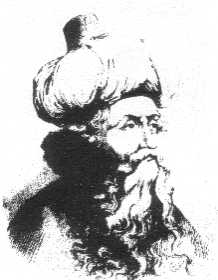Ibn ul-Arabi

Hazrat Sheikh Mohye-ed-din Ibn ul-Arabī (Arabic: ابن عربي) (July 28, 1165 – November 10, 1240) was an Arab Andalusian Sufi mystic, poet and philosopher.
He is renowned in the Muslim world as Sheikh ul Akbar (The Greatest Sheikh),[1] for his famous explanation of the concept of Tawhid (Oneness of God) through the concept or perception of the idea of Wahdat ul Wajood (Oneness of Being).
He was born in Murcia. When he was a child his family moved to Seville. Despite living in Spain, he visited North Africa a lot. In 1202 he visited Mecca, as part of his Hajj. He lived in Mecca for three years. He also visited Syria, Iraq, Turkey and Palestine. He would eventually move to Damascus. He died there in 1240.[1]
His most famous book is called The Meccan Revelations (Al-Futuhat al-Makkiyya in Arabic). It has 560 chapters. In the book, he writes about cosmology, metaphysics, religion, and Islam.[1]
References
[change | change source]- ↑ 1.0 1.1 1.2 "The Meccan Revelations". World Digital Library. 1900–1999. Retrieved 2013-07-14.
